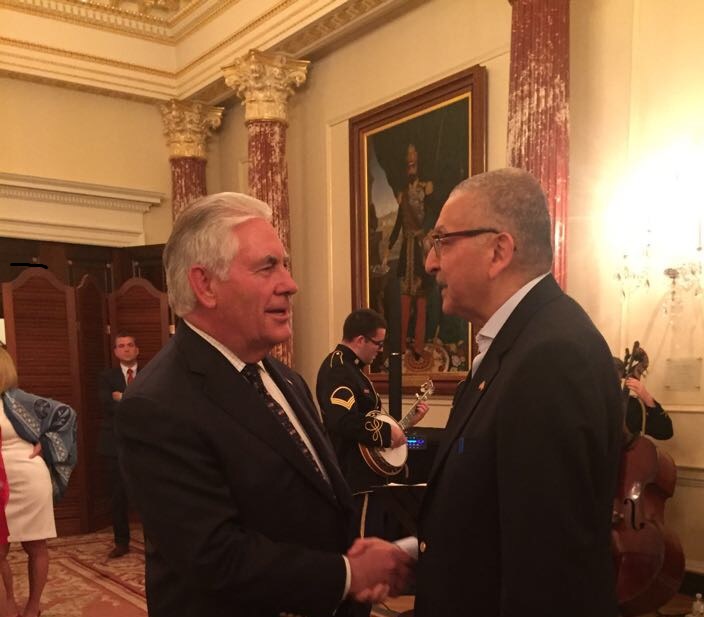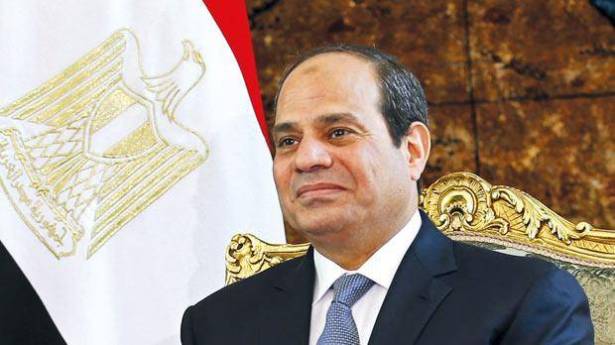Egyptian Foreign Minister Nabil Fahmy Delivers Remarks at CSIS Luncheon
Washington, DC – Today at a luncheon hosted by the Center for Strategic and International Studies (CSIS), His Excellency Nabil Fahmy, the Minister of Foreign Affairs of the Arab Republic of Egypt, delivered remarks, titled “Egypt’s Foreign Policy in New Realities.” His remarks were followed by a question and answer session moderated by Dr. Jon Alterman, Director of the CSIS Middle East Program. Minister Fahmy’s visit to Washington marks the highest-level visit by an Egyptian official to the United States since last July.
Highlights from Minister’s Fahmy’s speech on Monday included:
• On the profound change taking place in Egypt and the Arab world: “The transformations underway in Egypt are reflective of the broader currents of change in the Arab world at large. Indeed, the real question is not whether political change will come to the Arab world, but how that change will transpire; whether peacefully through mechanisms of reform by adapting the region’s political and economic structures to keep pace with the demands of change, or by way of revolution— the outcome of which is always fraught with uncertainty. Change will come to all, albeit in different expressions, tribulations and resolutions, because the people have now claimed their stake in the future.”
• On the future of Egypt’s foreign policy: “As Egypt looks to realize the promise of the revolution for a better future, the course of its foreign policy will be critical in realizing that future. Indeed, if I were to be asked what would be the overriding strategic objective for Egypt’s future foreign policy, I would venture to say that it is to provide an enabling domestic, regional and international environment for the attainment of Egypt’s future priorities. For Egypt’s experiment in democratic politics based on a civil state that guarantees equality for all citizens cannot succeed in a regional context that is distorted and dismembered by sectarianism. We will struggle to entrench the values of mutual tolerance in a country that is home to the largest Christian community in the Middle East in a region torn by religious extremism. And, rebuilding our economy will require Egypt to seek not only a stable environment regionally, free from the scourge of destabilizing conflicts and terrorism, but it will also mandate that we establish new partnerships globally.”
• On the US-Egyptian strategic relationship: “It is in the interest of both countries to renew the strategic rationale of the Egyptian American relationship that seems to have been set adrift by years of inertia. In doing so, however, we must recognize the existence of new realities on both sides. The United States must recognize that there is a new Egypt with a vigorous demanding population, one that will continue to engage the world but will not reconcile itself to a subordinate role or accept outside pressure. Egypt must also recognize the reality of America’s changing interests globally and in the region, and the political and economic constraints that are influencing its role in the Middle East. For Egypt, pursuing an internationalist foreign policy will also mean influencing and being influenced by international actors and public opinion. As a result, there will be differences of policy and even a divergence of interest between both sides. This should not be surprising given the reality of the United States as a global superpower and Egypt as a regional power, nor does it in any way diminish the importance of this relationship to both our countries.”


